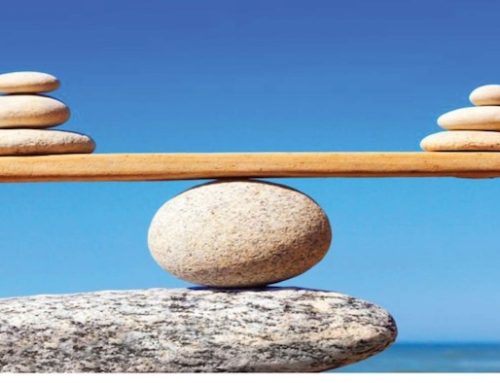Freeing oneself from the chaos of disinformation in our world today is imminently possible once we learn to nurture and honor our intuition.
One of the great challenges of the modern era is discerning truth from falsehood. In what I have characterized as the Age of Deceit that has been with us now for twenty years, assessing the firehose of inputs we receive each day in our digital era can be overwhelming.[i] This condition has given rise to, among other things, the strategy espoused by Trump advisor Steve Bannon to simply “flood the zone with shit” to disorient and deceive people to affect their manipulation. Overwhelming people with “shit” as opposed to informing them with facts that serve their best interest has become a prevalent modality of many politicians and has, unfortunately, been adopted in other sectors of our society from business, to education, to religion, and even the gaslighting that has crept into opinions rendered by justices of our Supreme Court.[ii]
Manipulation, which is designed to serve the interests of the advocate has displaced persuasion, which intends to serve the interests of the citizen. We can, however, nurture and honor intuitive skills that focus on the energy that accompanies the messages that bombard our lives to quickly and reliably determine what to consider and what to discard. All without having to indulge in comprehensive and time-consuming fact checking that can be extremely challenging in the slick algorithmic-driven messaging we endure today that is often designed to manipulate us.
I won’t get too wonky with you about quantum field theory and energy flows in our universe but, briefly, our world (and universe) is essentially an unbounded arena of energy flows that carry all of the elements that effect our lives. Intuitive discernment, which is based in these energy flows, is readily available to every human being regardless of intelligence, education, age, gender, or any other of the many ways we attempt to differentiate ourselves. If we nurture our capacity to feel the energy that accompanies the information we encounter and, further, if we pay attention to what that energy is conveying, we can avoid disorientation, deceptions, and our own manipulation. We can recover a sense of stability and calm; perhaps even optimism about the future.
“It just doesn’t feel right” is an example of our intuitive energy receptors flashing a red warning light. Disturbed energy that “doesn’t feel right” escorts information that is deceitful, angry, fearful, envious, etc. Our job is to recognize it for what it is and move on. As fully formed rational adults, however, we often ignore what to our intuition is obvious. We pay for our indiscretion with pain: emotional, psychological, financial, or even physical pain. Correcting this imbalance in our decision making and judgments begins with expanding our awareness and increasing the weight we assign to what we commonly call feelings. It also requires reducing the speed with which we discard these feelings in favor of our rational minds. Not much time is needed—just a few seconds—to honor what our intuition is trying to tell us before it is overruled by our rational mind.
This capacity of intuitive discernment begins with clearing and cleaning our own psychic house. Children generally have higher intuitive capacity than adults for two basic reasons. First, because they have yet to develop much else cognitively, and second because they are filter-free. They neither block nor accelerate inputs based on knowledge or beliefs. Their principal operating system is intuitive based on how the accompanying energy makes them feel. They cry or laugh out of feeling rather than knowing. So, to improve our own intuitive discernment in later life, one way to look at the task is to channel the innocence of being a child, which means shedding much of what we have naturally accumulated throughout our lives. Further, where this stuff that impedes our intuition resides is in the ego, which is where we need to start clearing and cleaning.
Mindfulness gained through contemplative and meditative practices are powerful tools to begin the enlightenment we need to become aware of the role our egos play in our lives—for better and worse. Our egos contain what I have called our cognetic profiles that embody all of our knowledge and beliefs acquired through education, experience, socialization, and indoctrination (the four vectors of cognetics). Our cognetics are what we call upon to conduct what we believe is rational decision making. I designed the system originally in my PhD research to understand and predict the decisions of our presidents and, subsequently, foreign leaders. But it can be applied to any human being. It is also a great tool for personal assessment: to know thyself (as Aristotle suggested) which, when considered in a contemplative/meditative mode, can help each of us understand how our cognetics (in the ego) are both beneficial and detrimental to the decisions and judgments we make.
As we age, I have become convinced that the path to transcendence requires that we routinely challenge our cognetics that become cluttered with many elements of knowledge and beliefs that may no longer be relevant or, in many cases, are just wrong. To get on the path to transcendence and avoid the path of suffering, we must humbly learn to carefully discard many of the ideas and practices we have utilized in the past. To relax and release to rise. Further, this is why some of us are characterized as wise as we age, and others become insufferable curmudgeons. This clearing and cleaning process will affect a rebalancing that allows intuition to regain its footing vis-à-vis our rational mechanisms as we consider the world before us. Embrace the psychic cleanse for your mental health in the same manner you may have cleansed your microbiome for your gut health.
The goal is integrative or holistic decision making. Holism in judgment means blending inputs to decision making in a balanced manner where intuitive feelings are considered first as an initial screen rather than after the rational processes (or not at all). In other words, if the initial intuitive sense is negative, discard the consideration altogether before wasting time on the rational. How the energy that accompanies information feels is often the only thing we should consider. “Trust your gut” is another common dictum that applies here.
As many have adopted Bannon’s “flood the zone with shit” approach to making us do what they want, we need to improve our holistic decision making. Intuition, which the Oxford Dictionary defines as “the ability to understand something immediately, without the need for conscious reasoning,” needs to get much more playing time. The great news is that it is available to all of us—from children to elders—and can allow us a sense of tranquility we could all use much more of today. We really shouldn’t be enduring the agitation that we do, but we should recognize what the energy in the agitation is trying to tell us. All we must do is embrace a little clearing and cleaning—psychic cleansing—and calm our monkey-minds with meditative awareness. To liberate us from the shit-vendors and put a smile back into our lives.
[i] See William Steding, Saving America in the Age of Deceit (2020).
[ii] See Jesse Wegman, “The Supreme Court is Gaslighting Us All,” https://www.nytimes.com/2024/07/12/opinion/supreme-court-psychological-manipulation.html.






